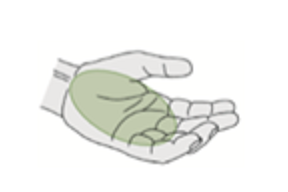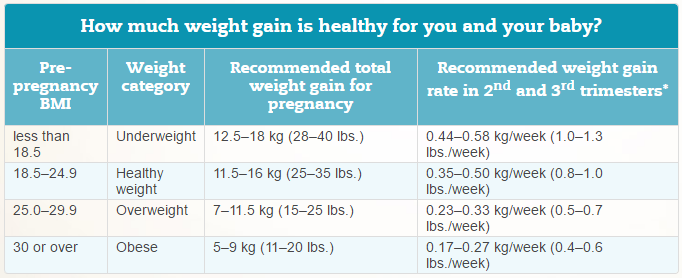Three meals and two to three snacks at regular times is the way to go.
Meal Timing
Eating meals and snacks at the same times every day can help control blood sugar levels. Spread your food throughout the day. That way, your body – and your baby – isn’t ‘starving’ at any point during the day.*
- It can help control weight gain.
- It can make it easier to manage any blood sugar medications like insulin that you might be taking.
- It can mean better health for you and your baby.
- Eating too much at once can put too much stress on your body to release insulin: your sugars may go high.
Do not skip meals or snacks to lower blood sugar levels.
It is important not to skip meals or snacks in an attempt to lower your blood sugar levels.
- This can put your body in a stress state and actually increase your blood sugar levels.
- It can prevent your baby from getting his or her needs.
Use your hand to give you an idea of how much carbohydrate, protein, and good fats you should eat at each meal (see below).
Go for healthy snacks, a combination of smart carbs and proteins.
Remember: You are NOT eating for two. You are eating for you and a LITTLE developing baby.
* A note on fasting. Remember that once a baby is born, she or he needs to be nourished frequently at the beginning. We never make a baby fast. By the same principle, when pregnant, we try to spread our food across meals and snacks. That way the baby receives nourishment regularly, in reasonable amounts. It is not a good idea to fast during pregnancy.
Pregnancy is not eating for two. It is eating for you and your LITTLE developing baby.
Dietitian Diala Reda explains how spacing out your daily meals and snacks is very important when you have GDM.

Audio Only
How do I judge how much to eat? Use your hand to estimate portion sizes.

Starchy Vegetables and Whole Grains (Smart Carbs)
Use the size of your fist as an approximation to your meal portion for carbohydrates (this is the equivalent of three servings or 45 grams of carbohydrates).

Healthy Proteins
Aim for the equivalent of three palm-sized portions of protein each day:
- Breakfast – 1/2 a palm-sized portion of protein containing foods
- Snack – 1/2 a palm-sized portion
- Lunch – 1 to 1-1/2 palm-sized portions
- Snack – 1/2 a palm-sized portion
- Dinner – 1 to 1-1/2 palm-sized portions
- Snack – 1/2 a palm-sized portion

Good fats
Use your thumb: In general, to know the right amount of fat to consume during one meal, you can use the tip of your thumb to estimate the recommended serving of fat when cooking for one person.
Dietitian Sedra Jundi explains how to use your hand to determine correct portion sizes.

Audio Only
If you are gaining ‘on target,’ you are probably eating the right amounts.
- If you are not, you may need to increase or reduce amounts.
- Do NOT skip meals or snacks as this is not good for you or your baby
- Sometimes gaining more than your targets may not be related to what you are eating or how active you are. For example, some women have a lot of swelling late in pregnancy. Discuss this with your health care team.
- For some women, a few extra calories above what they ate before pregnancy may be enough; this can be achieved by adding healthy snacks.
- For other women, just changing the quality of food they are eating can be enough to meet pregnancy needs while preventing blood glucose spikes and excessive weight gain. Remember the healthy plate.
- How much you eat should be individualized according to your weight and your body mass index before your pregnancy. You should consult with your health care provider to figure out the right weight target for you.
How what you eat – and when – affect blood sugar.
Dr. Sara Meltzer (McGill University Health Centre) how meal and snack timing affects blood sugar levels.
How GDM affects insulin and why this is important.
Dr. Meltzer explains how insulin works and the challenges to normal insulin production caused by GDM.


